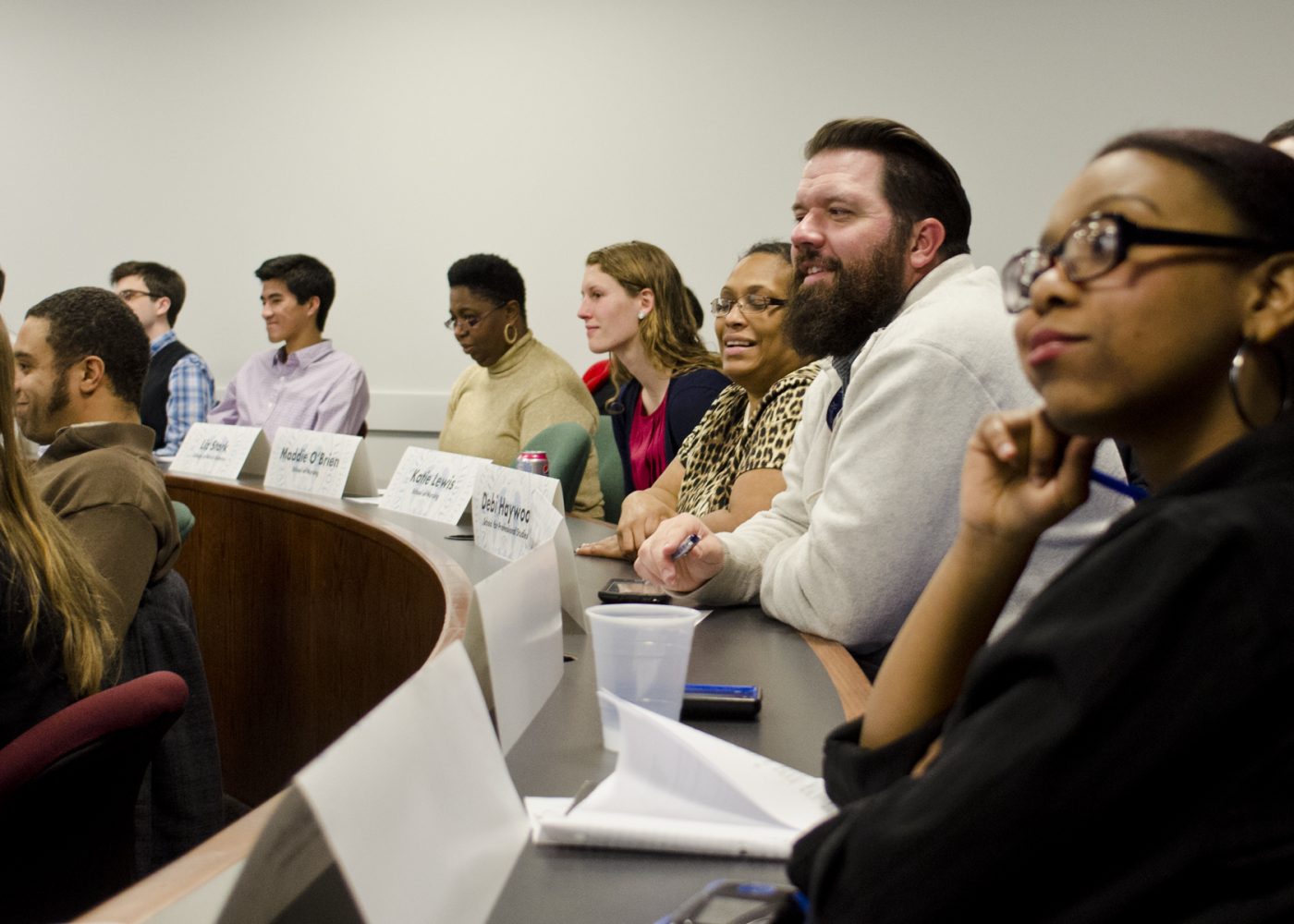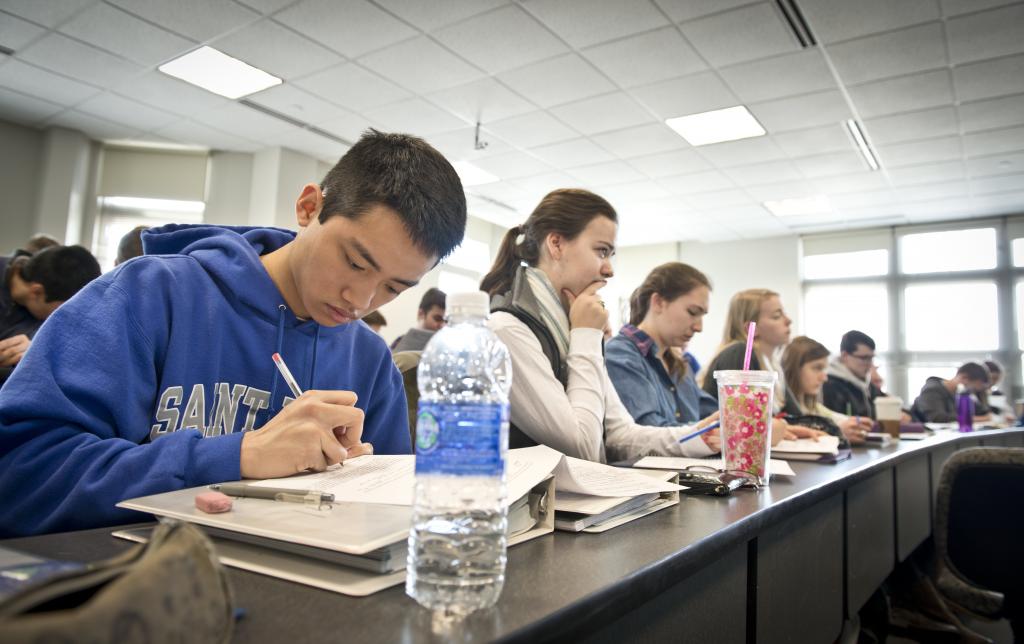Some students at Saint Louis University might see the core curriculum as a requirement that they have to fill. After every general education class completed, they check off a box and move on to the next course. Students might even hear academic advisors tell them to take these classes early on in their collegiate career, in order to ‘get them out of the way.’
The problem of the student’s mentality toward the core curriculum as an obligation, rather than an opportunity, was one of the issues an interdisciplinary panel, -including faculty teachers representing several departments within the College of Arts and Sciences- discussed on Tuesday afternoon, Feb. 10, in the Loyola room of Jesuit Hall.
The panelists: Anneke Bart, mathematics; Dan Finucane, theological studies; Jan McIntire-Strasburg, English; Jennifer Popiel, history; Ed Sabin, psychology; and Rob Wood, biology; gave their opinions and ideas on what the College can do to change the undergraduate students’ perception of the core and how they can deliver it more cohesively to the students.
“Our students don’t really understand how our courses in the core work together,” said McIntire-Strasburg. The disconnection between the core courses and the students became a major theme throughout the panel.
“We are less about educating and more about credentialing, making someone qualified for something. That’s not the only job of a university,” said McIntire-Strasburg. “The only way we can get students to realize that, is if we demonstrate how courses work together, how disciplines work together.” McIntire-Strasburg has put this idea of interdisciplinary learning into action with fellow professor, Greg Beabout from the philosophy department, who also acted as the moderator for the panel.
McIntire-Strasburg and Beabout have been co-teaching the course ‘Ethical Leaders in Business’ for the past two years. The professors give the students assignments that work in tandem with writing and philosophy, while also going on field trips, so that students see classroom material at work.
The panel also discussed the number of adjunct professors teaching core classes, the loss of student-professor advisement about the core, the way academic advisors talk about and handle the core and the commitment of faculty to deliver core classes with conviction and enthusiasm.
“I think that faculty can improve delivery of the core by first figuring out whether we believe the core is important. Let’s be honest with ourselves and let’s talk to each other. Do we believe the core is important?” asked Finucane.
Popiel said that a major problem behind student’s negative or indifferent mentality toward the core is the lack of backing by faculty and administration.
“This University can send that message… from the top down that these courses matter,” said Popiel.
Although the issues mostly dealt with how faculty deliver the core, Wood pointed out that for some students, mainly those who major in sciences, completing both core and major requirements means having less of a chance to explore further interests outside of their field of study.
“Considering a bachelor’s degree is about 120 credit hours, this would indicate that our typical major (biology) would only be allowed to take roughly two electives over the course of a four-year study program,” said Wood. “I find this circumstance outrageous.”
While other panelists might have disagreed the bigger issue with the core is how it is delivered rather than the core itself, the panelists seemed to concur that if any of these issues were to be resolved, there needs be a University-wide discussion and a consensus of what the core should look like and how it should be delivered.
“If we are committed to the idea that we want to shape our students to be people for others, then we need a unified vision of what that means,” said Popiel.







